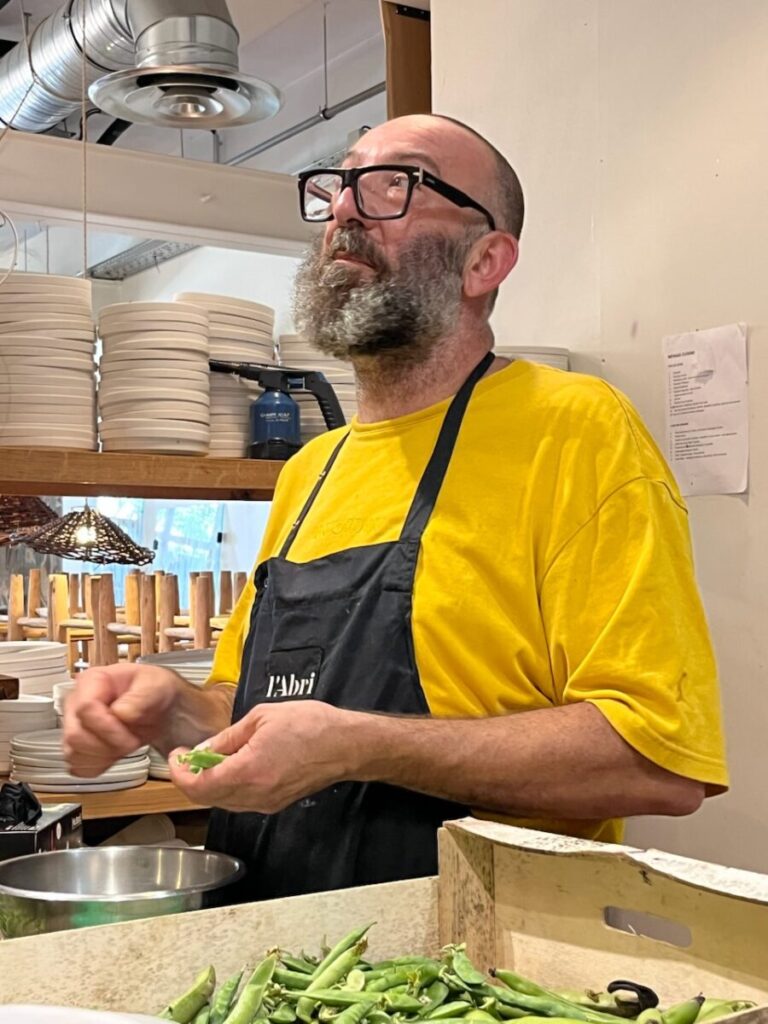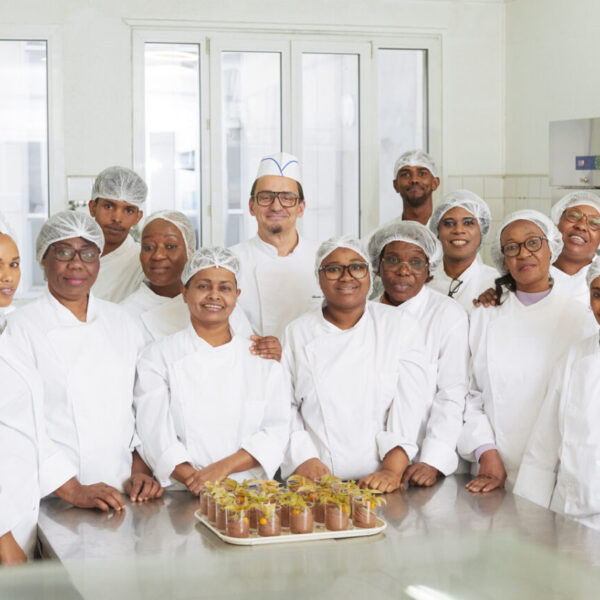In a Mediterranean crossed by migrations and cultural encounters, cuisine often asserts itself as a universal language. It is on this conviction that the Refugee Food Festival was born, an initiative at the crossroads of humanitarian, cultural, and gastronomic issues.
From June 8 to 29, twelve cities in France celebrated the meeting between chefs' cuisines and refugees from around the world. The Refugee Food Festival orchestrates the arrival of vulnerable populations in well-established venues. And this has been going on for 10 years. "In 2015, we returned from 18 months of traveling where we cooked and ate with everyone we met," explains Marine Mandrila, co-founder of the festival. "It was the first major wave of Syrian migration, and in an ultra dehumanized discourse, our country decided not to welcome some of these people. The contrast was striking with the welcome we received in all these countries. It then seemed obvious to us to try to contribute at our level, through a universal and very intimate theme: the meal."
Opening the kitchens
The RFF was thus born in 2016, inviting restaurateurs from all over France to co-create for a few days, shared menus with these highlighted refugees. Local associations and social workers help identify the profiles. On the other side, restaurants expressing their pleasure in opening their kitchens are plentiful. "A refugee who only speaks their language can only end up in a dark kitchen," laments Samar Mawazini, who, along with her sister Nahed, a former Syrian telecom engineer, transitioned from home cooks to entrepreneurs with two catering businesses in Marseille, Grenade, and Pistache. A festival in 2025 at L'Abri, a restaurant of the 7th art in Marseille, allowed them to understand the logistics and service of an establishment as well as plating. "In the kitchen, we are constantly feeding ourselves," comments Mathieu Roche, chef at Ourea in Marseille, who hosted an Afghan woman last year who had never cooked professionally and spoke neither French nor English. "We showed each other the ingredients, I bought some spices, and then, clack clack, we started chopping, and there, we understood each other naturally. It's a very cool feedback experience. The exchange is the most inspiring thing."
In 10 years, from Dijon to Bordeaux, and from Lille to Nice, passing through Rennes, Rouen, and Paris, from neighborhood canteens to 3-star restaurants, more than 500 establishments have been mobilized for about 600 refugee cooks from 56 different nationalities. Next year, two new cities will join the circuit of these events that tell the stories of multiple lives.
Creating desires
"These exchanges aim to value people and their journeys, by playing on self-confidence", summarizes Marine. But underlying this media coverage of disrupted lives is a truly political act. "In a context where the negative treatment of immigration has reached unprecedented levels, we believe more than ever that hospitality is a value to cherish and to elevate as a symbol," states the festival. "Positioning ourselves at this time of denigration and constant aggression towards the south is the least we can do," asserts Pierre Meynet, chef at L'Abri, who participates in the four-hands sessions every year, cooking mixed mezze with Grenade and Pistache last year. "Everyone has the right to be welcomed," claims the co-founder of the RFF as well.
Today, this mix of culinary heritages and legacies from around the world has become more than just a few days' event. "We have developed expertise and are now part of a support ecosystem," states Louis Martin, co-founder of the RFF, now in charge of integration. Training, catering, and education are thus offered year-round to recognized refugees, in addition to the summer event. In Paris, the RFF includes three restaurants training refugee cooks, about 500 delicious, complete, and daily meals prepared by the integration brigade, a catering service, and finally, a six-month training program for kitchen assistants, supported by various language and digital assistance courses. "In this tense restaurant sector, we want them to benefit from real evolution and skill enhancement," summarizes Louis. And in this posture of active hospitality, borders suddenly become trivial, around a plate and a cutlery.

Cover photo: A team from Refugee Food at the restaurant le Tournesol in Paris © Aglaé Bory
